Porto-North-Portugal.com
The best independent guide to Porto
Porto-North-Portugal.com
The best independent guide to Porto
Porto Desserts: A Guide to the City's Classic Sweets for 2026
Porto is a city celebrated for its robust, savoury flavours, from the formidable Francesinha to the fresh seafood of Matosinhos. Yet, its dessert tradition is equally rich, offering a sweet and comforting counterpoint to its hearty main courses. Many of these recipes have deep roots in the conventual traditions of Northern Portugal, transforming simple, high-quality ingredients into desserts of incredible depth.
The influence of the region is clear, with eggs, cinnamon, and of course, Port wine, making frequent appearances. For a visitor, the dessert menu in a traditional Porto tasca can be a list of intriguing but unfamiliar names. Choosing between a Bolo de Bolacha and a Pudim Abade de Priscos can be a challenge.
This guide explains the essential desserts you'll encounter in Porto, from the riverside restaurants of Ribeira to the traditional eateries in Vila Nova de Gaia. It details the flavours and textures of each classic, helping you find the perfect sweet to complete your northern Portuguese meal.
Rich Puddings & Creamy Custards
These desserts are the foundation of Porto’s sweet offerings, reflecting the region's love for rich, comforting, and satisfying food.
Pudim de Ovos
A staple in the traditional restaurants tucked away in the steep streets leading down to the Douro. This is the classic Portuguese flan: a dense, smooth egg pudding that gets its character from a dark, slightly bitter caramel sauce. It is a simple, reliable, and delicious taste of authentic Portugal.
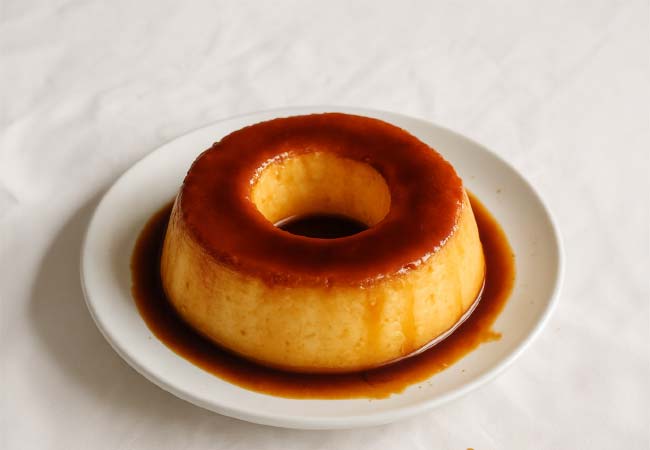
Arroz Doce
A heartwarming classic that feels right at home after a meal in the cooler, often misty climate of Porto. This sweet rice pudding is exceptionally creamy due to the inclusion of egg yolks and is gently flavoured with lemon peel and cinnamon. It’s a comforting taste of Portuguese home cooking.
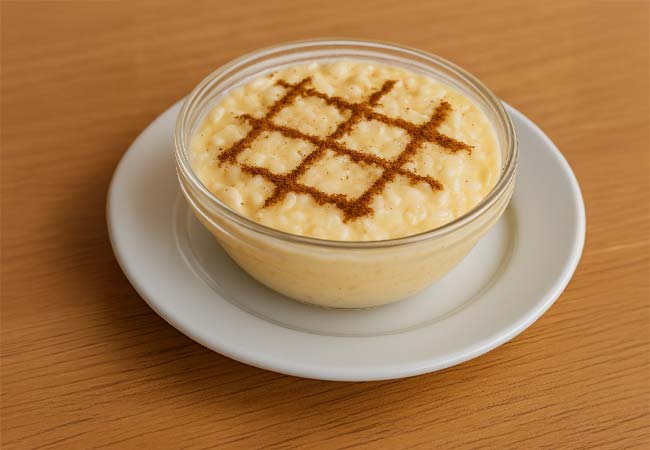
Leite Creme
A favourite in family-run restaurants throughout Porto. Similar to crème brûlée, this is a lighter, stovetop-cooked custard. Its magic lies in the final step, when a layer of sugar is burnt on top to create a glassy crust, offering a wonderful contrast to the cool, smooth custard beneath.
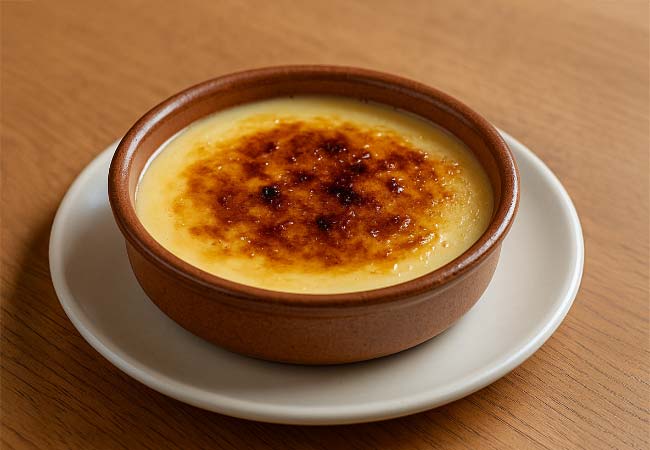
Baba de Camelo
The amusing name ('camel's drool') belies a simple, rich, and utterly delicious caramel mousse. You will see this reliable favourite on dessert lists from the seafood restaurants of Matosinhos to the tascas of Ribeira. It is made from little more than condensed milk and eggs, whipped into an airy, velvety treat.
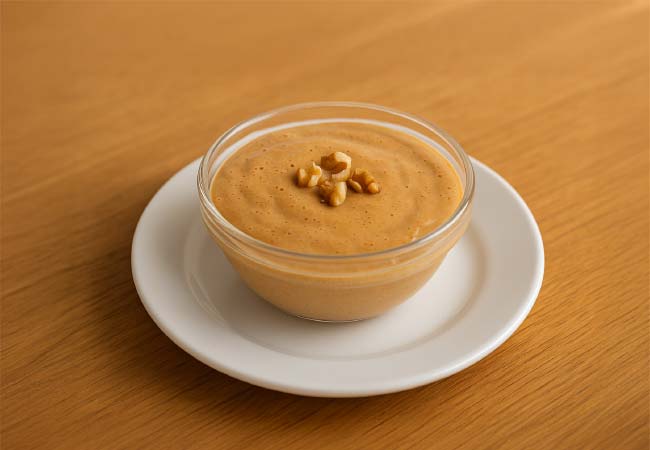
Pudim Abade de Priscos
If you try one unique dessert in Porto, make it this one. This is a local masterpiece from the Minho region, just north of the city. Created by an abbot, its legendary richness comes from an immense number of egg yolks, a generous amount of Port wine, and its unique ingredient, cured pork fat. The result is an incomparably smooth and velvety pudding with a complex, deep flavour.
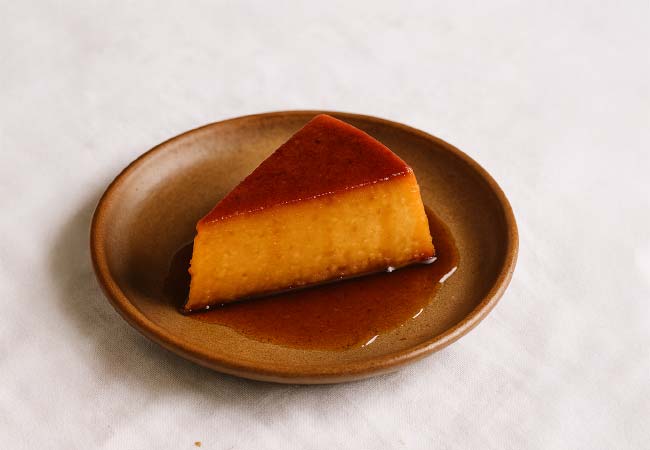
Mousse de Chocolate
The Portuguese version of chocolate mousse feels particularly at home in Porto, where it is often appropriately robust and intense. Made with dark, high-quality chocolate, it is less sweet and more profoundly chocolaty than other versions, offering a rich and satisfying finish.
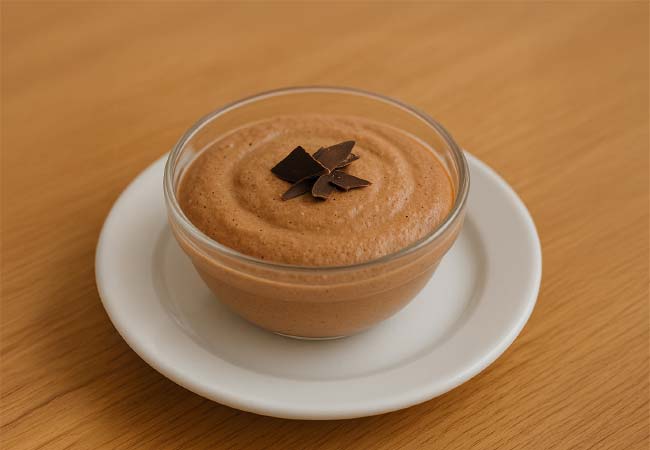
Light Meringues & Layered Cakes
For a break from rich custards, these desserts offer lighter textures and the nostalgic flavours of home-style baking.
Pudim Molotov
A surprisingly light and elegant dessert you’ll find on menus across Porto. This is not a pudding in the traditional sense, but a towering, baked meringue. It is ethereal and airy, melting in your mouth. Its simple sweetness is anchored by a rich caramel sauce, making it a refreshing choice after a heavy meal.
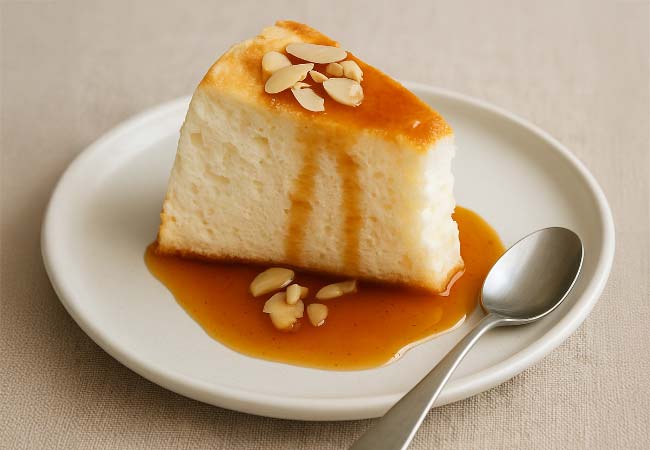
Farófias
A taste of home, often found in the more traditional, family-owned eateries away from the main tourist centre. Farófias are delicate clouds of meringue, gently poached in cinnamon-and-lemon-infused milk and served with a sweet egg custard. It's a light, comforting, and nostalgic dessert.
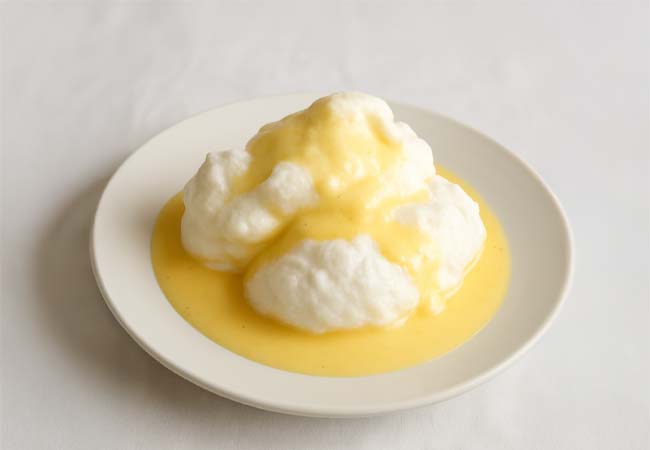
Bolo de Bolacha
This is the nostalgic taste of a Porto childhood on a plate. A simple, no-bake "cake" constructed from layers of Bolacha Maria biscuits soaked in strong coffee and cemented together with a dense, rich buttercream made from butter, sugar, and egg yolks.
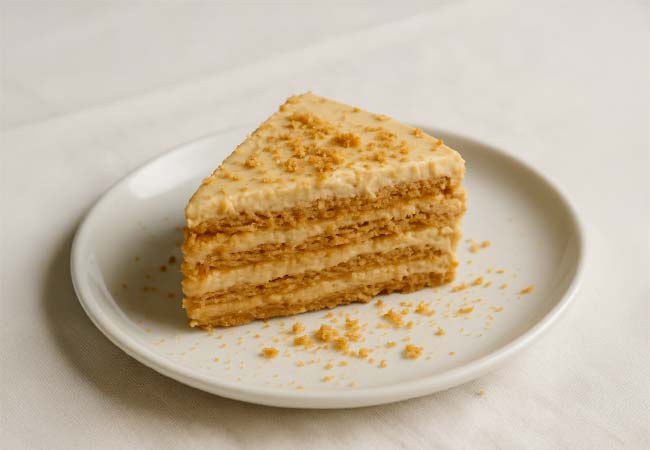
Tentação (Temptation)
A crowd-pleasing modern classic commonly found in the city's more casual restaurants and cafés. A Portuguese take on Tiramisu, it layers coffee-soaked biscuits with a sweet cream made from condensed milk and whipped cream. It is simple, sweet, and lives up to its name.
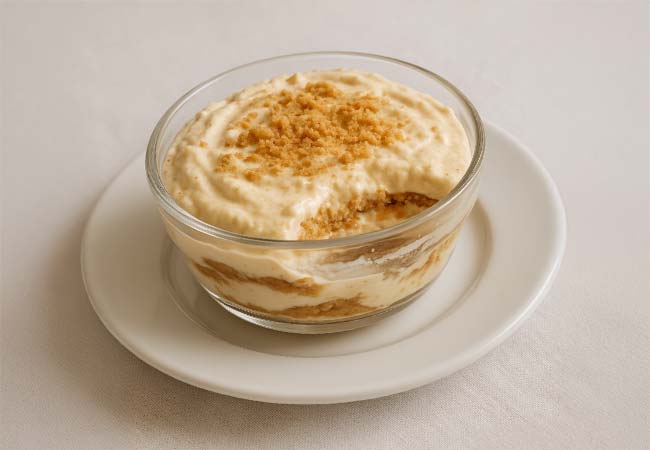
The Porto Way to End a Meal: Ordering Coffee
In Porto, a city of strong character, the end of a meal is marked by an equally strong coffee. The simplest way to order is to ask for 'um café' (oon ca-fay), which will be understood everywhere as a standard espresso. However, to order like a true local, you ask for 'um cimbalino' (oom seem-bah-lee-no).
The name comes from the La Cimbali brand of espresso machines that were once ubiquitous across the city. This regional distinction is a point of local pride. While in Lisbon you would ask for a 'bica', using that term here might earn you a playful look. An old joke tells of a visitor from Lisbon asking for a bica (which also means 'spout' or 'fountain') and being jokingly directed to the nearest public water fountain.
Port Wine and Other Dessert Pairings
In Porto, finishing a meal offers the perfect opportunity to sample the city's most famous creation. There is no more authentic local experience than pairing your dessert with a glass of Port wine, served by the people who know it best.
In its hometown, a glass of aged Tawny Port is the ultimate partner for the region's nutty or caramel-rich desserts, such as the Pudim Abade de Priscos. Its complex flavours of dried fruit and warm spice beautifully complement the sweetness. For a rich Mousse de Chocolate, a bold Ruby Port provides a classic and satisfying contrast. While other liqueurs are available, taking the time to enjoy a proper Port pairing is a quintessential part of any visit to the city.
If you've enjoyed our content, we'd like to ask for your support.
The internet landscape has changed, and small independent publishers like us face increasing challenges. Search engines now prioritize advertising over organic content, reducing our traffic, while AI systems increasingly copy our original work without attribution.
To help support us, please consider bookmarking our website for easy access. If you find an article useful, we encourage you to share it with friends or on social media. Equally, if you notice anything outdated or incorrect, please let us know so we can promptly address it.
We're always open to collaborating with brands, bloggers, and SEO/PR agencies who value independent creators. If you'd like to work with us or offer support, please reach out at: [email protected]
Thank you for being part of our community and helping us continue to provide valuable content in an increasingly challenging digital environment.




















